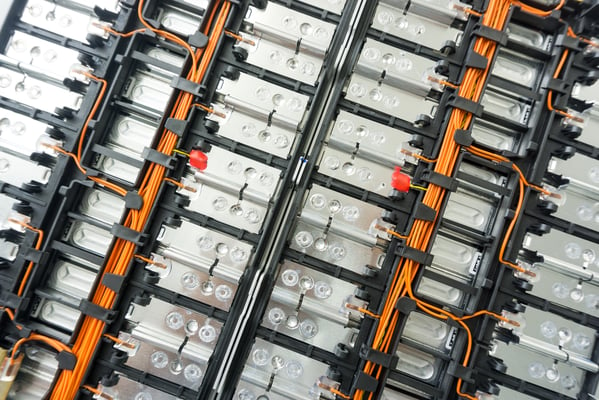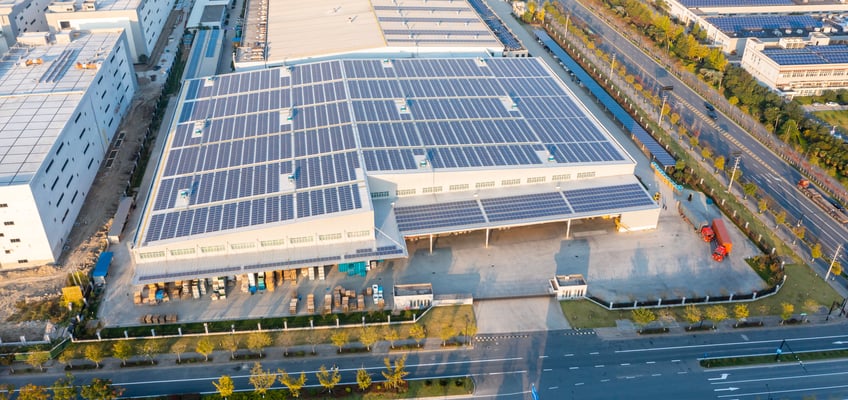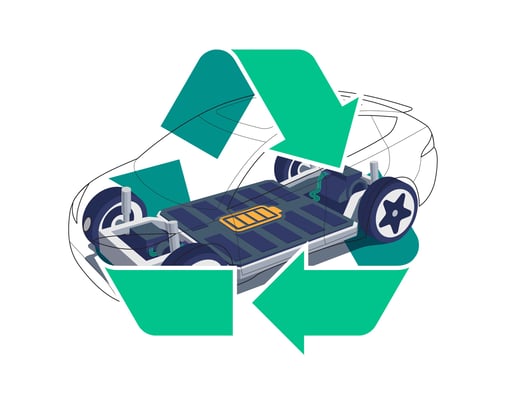.png?width=1000&name=Untitled%20design%20(19).png)
What is residential battery storage?
With electricity prices soaring and energy shortage looming as a threat on the horizon, options for controlling your power consumption and having a backup in case of a blackout are worth considering.
Battery energy storage solutions (BESS) can be what you are looking for.
BESS - what kind of batteries are they?
More and more companies are offering domestic energy storage in the form of BESS.
These batteries are not the kind of batteries you would find in ordinary house appliances. Instead, the technology and components are similar to batteries used in EVs. In other words, these batteries are lithium-ion batteries capable of storing energy and charging and discharging in rapid cycles.
Also, although varying, the size is bigger than the ones found in house appliances. Depending on the size of your house and what energy needs you have, a battery solution can consist of one or many batteries coupled together and scaled for your needs.
It is also possible to get refurbished EV batteries for use in domestic storage solutions.
Second life EV batteries
Second-life EV batteries make a circular battery economy possible and are crucial for the future economies of the world. It is of the absolute essence that we turn our focus on reusing and recycling valuable materials instead of throwing them away.
The EV revolution is making its mark on transportation, and massive amounts of storage capacity are becoming available as EV batteries are coming to their end of life. Repurposing will eventually become the rule, not the exception like it is today.
As the batteries used for domestic storage are the same kind of batteries used in EVs, EV batteries that are coming to their end-of-lifetime and have reached the capacity threshold of 80% can be repurposed into domestic battery storage solutions.
Leading to a circular battery economy, second-life residential battery solutions are the future of energy storage.
Why you should invest in residential battery storage
Residential battery storage solutions give you many advantages.
Storing electricity gives you energy security. If you live in an area where the local grid is weak and unstable or where the forces of nature often cause blackouts, you will benefit from having a backup. A battery solution will supply you with the power you need until the grid is online again.
Storage of solar energy you´re not using when produced. Suppose you have a solar array on your roof. In that case, battery storage is definitely for you, as it allows you to store the energy you make during the day instead of selling it to your power company or, even worse, letting it go to waste. When you sell your electricity and repurchase it, it becomes more expensive. What you are paying for when you repurchase is not just the electricity you´ve sold but also the different taxes and fees that the electricity company charges. This will make your electricity (in Norway – it may be different in other countries) as much as ⅔ higher than the electricity you produce yourself.
A battery solution will allow you to control the way you use electricity. You will be able to store energy at times of the day when prices are low and use it at times when prices are high.
The battery solution has different options and settings, allowing you to tailor when to store energy. With an easy-to-use interface, it is possible to decide when to use the power you have stored, sell it if you have solar arrays on your roof, or use the electricity you have produced if you´d rather use it than sell it.
BESS is the future
In the near-future solar arrays in combination with battery storage solutions have been depicted as one of the solutions to the energy crises the world is facing, so why not be an early adapter and try it out?




